Robert Chandler graduated with a BA in Russian and English Literature from Leeds University. His translations from Russian include Vasily Grossman’s Life and Fate and Everything Flows, Leskov’s Lady Macbeth of Mtsensk and Aleksander Pushkin’s The Captain’s Daughter. His co-translations of Andrey Platonov have won prizes both in the UK and in the USA. His translation of Hamid Ismailov’s The Railway won the AATSEEL prize for 2007 and received a special commendation from the judges of the 2007 Rossica Translation Prize. He is the editor of Russian Short Stories from Pushkin to Buida and the author of Alexander Pushkin (in the Hesperus ‘Brief Lives’ series). He has also translated selections of the poetry of Sappho and of Apollinaire.
SRAS: How long have you been a translator and how did you first start in the profession?
Robert Chandler: It is probably about 35 years since I first translated one of Andrey Platonov’s versions of Russian folk tales. I had just graduated from university, and this was the first piece of work I completed on my own initiative, as opposed to exercises set by teachers. Then I translated two more of Platonov’s tales, sent them to Faber and was commissioned to translate the remaining three. All six were then published as a children’s book titled The Magic Ring. But during the following twenty years I did many other jobs. It is really only during the last fifteen years that I have devoted most of my time to translating.
SRAS: So you simply translated the text and took it directly to the publisher? Can I ask – did you just drop it in the mail to them or did you already have a contact within the publisher? Did you show it to other publishers as well?
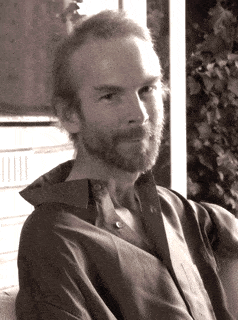
RC: I just dropped it in the mail. Faber accepted it quickly, and I did not show it to anyone else.
SRAS: So what did you do in those twenty years? It seems odd that someone who would go on to be a renowned translator would leave the profession after a first, early success. Why did you leave translation – and how did it come about that you returned?
RC: There were no periods of more than a year or two when I did no translating at all. But that’s probably not enough of an answer – so let me say more. In my early twenties I suffered from severe depression and generally poor health. In my attempts to sort myself out, I did a variety of different jobs. I worked as a cook in a wholefood restaurant. I trained, and then worked, as a teacher of the Alexander Technique – a discipline, perhaps better known in the UK than in the USA, that has to do with movement, posture, breathing and voice. I also went to a psychoanalyst for many years. Eventually I became emotionally stronger, and clearer about what I wanted to do in the world.
SRAS: What training or education did you have to prepare you to be a professional translator?
RC: Nothing much. In the 1970s there were no masters’ degrees in translating. There was simply no such thing as “Translation Studies.” But I was fortunate in other ways. In high school I had an outstanding teacher, Gordon Pirie, who at one time or another taught me French, Russian and English Literature. He was passionately interested in translation and, years later, he produced the finest versions in English of La Fontaine’s fables (published in the UK by Hesperus) I went on to major in Russian and English Literature, and I spent a year in the Soviet Union, in Voronezh, in the early 1970s.
SRAS: Can you describe the process of translating – from finding the job (or deciding what text to do next), to the process you use for producing a finished translation, to delivering the work and receiving payment.
RC: I don’t think I follow a “process.” Each occasion is different. Sometimes – as with Andrey Platonov’s The Foundation Pit – I have spent ten or fifteen years persuading a publisher to commission me to translate a particular work. On other occasions I have simply agreed with a publisher’s suggestion. In terms of doing the work, the only advice I can offer is to listen, again and again, both to the original text and to one’s draft translation. I usually read at least two complete drafts aloud to my wife. Sometimes we discuss difficult passages day after day for weeks on end – until we both feel satisfied. Apparently simple Russian sentences are sometimes very difficult to render into English that is clear and convincing. Dialogue is often particularly difficult.
SRAS: This is something that we try to teach as part of our Translation Abroad program. Many beginning translators will translate a text and capture the meaning of the original, but in such a way that the new English text is at best a very difficult read and at worst incomprehensible to someone who had not read the original. The English needs to read as though it were originally written by an English speaker.
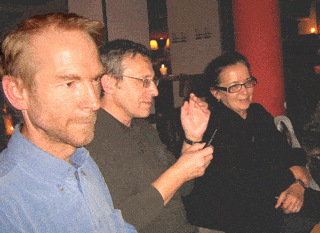
Can you give an example of a particularly simple-yet-difficult passage that you’ve had to translate?
RC: Here are two sentences from Vasily Grossman’s “The Old Man,” a story written – and set – during the Second World War. The village where Galya lives has been under German occupation but is now being liberated by the Red Army. Galya calls out these words to a wounded Red Army soldier:
Кровь вы свою за нас проливаете, гoлубчики наши! […] Сейчас уложим тебя, обогреем.
“Голубчики” is, of course, a term of endearment that is hard to render adequately, but it is the last three words that present the greatest difficulty. One might, for a moment, imagine that they could be translated as “We’ll lie you down now, we’ll warm you up!” – but this, like most of our early versions, sounds absurd. Apart from anything else, it sounds inappropriately sexual. Other versions somehow gave the impression that Galya is about to warm the soldiers up in the oven.
At one point I talked about this passage with my students at London University. One young woman came out with “Come in – and you can take the weight off your feet!” For a moment I felt delighted. This translation, after all, is imaginative and wonderfully idiomatic. I was so pleased by the student’s boldness that I was oddly slow to realize that her translation does not fit the context at all. It would be fine if Galya were addressing an old woman who has been standing all day in a line for bread, but it is not what she would say to a young soldier who has been seriously wounded… Eventually, after returning to this sentence I don’t know how many times, over a period of at least a month, my wife and I came out with the following:
“My darlings,” said Galya, “you boys have been shedding your blood for us! Now it’s our turn to do something. Soon we’ll have you lying down in the warm!”
It may seem odd that we have added an entire extra sentence, but I would argue that this sense of reciprocity is implicit in the original and that the English feels incomplete without it. Even now, though, I feel a little unsure about this passage. It may be necessary to add even more words. Perhaps it should end: “… Come along– soon we’ll have you lying down in the warm!” … Or maybe someone reading this interview can suggest something neater. If so, I’ll be more than grateful! Much of the difficulty of this passage, of course, stems from the very un-English quality of the patriotic rhetoric.
SRAS: We’ll let you know if we hear from someone. So, would you describe translating as a “good job” (in terms of pay and job satisfaction). Why or why not?
RC: In terms of pay: appalling. In terms of job satisfaction: wonderful. My wife and I have translated some of the greatest writers in world literature: Pushkin, Platonov, Grossman. The nature of the task forces us to listen to their every word with the utmost attention. This has enabled me to appreciate aspects of their work that I would never otherwise have noticed. This is a great joy.
SRAS: Professionally, what would you say is the single most challenging aspect of being a translator?
RC: There are – literally – thousands of decisions involved in translating even a few pages. One has to remember that one will always get things wrong. All translators sometimes make the most stupid mistakes. Their eye skips something in the original, and they leave out a word, a sentence, even an entire paragraph. They don’t know enough about some aspect of Russian life – and so completely misunderstand something. Or – precisely because they do have such a complete grasp of the original – they fail to realize that their own English is ambiguous. I now get as many people as possible to check all my work. I always get at least one person to check the complete text against the original, and I ask as many people as possible to read through the English text. I see this as the equivalent of road-testing a car.
SRAS: What was the most challenging text that you worked on? What about the text made it difficult and how did you overcome the challenges posed?
RC: Andrey Platonov’s The Foundation Pit. We discuss the difficulties at length in our introduction and notes to the New York Review of Books Classics edition. But here are a couple of paragraphs I wrote earlier, in my introduction to The Portable Platonov:
“The ideal translator of Platonov would be bilingual and have an encyclopedic knowledge of Soviet life. He would be able to detect buried allusions not only to the classics of Russian and European literature, but also to speeches by Stalin, to articles by such varied figures as Bertrand Russell and Anatoly Lunacharsky (the first Bolshevik Commissar for Enlightenment), to copies of Pravda from the 1930s and to long-forgotten works of Soviet literature. He would be familiar with Soviet-speak, with the rituals and language of Russian Orthodoxy, with everyday details of Russian peasant life, with the terminology of mechanical and electrical engineering, and with the digging of wells and the operation of steam locomotives. This imaginary translator would also be a gifted and subtle punster. Most important of all, his ear for English speech patterns would be so fine that he could maintain the illusion of a speaking voice, or voices, even while the narrator or the individual characters are using extraordinary language or expressing extraordinary thoughts. Much has been written about Platonov’s creativity with language; not enough has been written about the subtlety with which—even in narrative—he reproduces the music of speech, its shifts of intonation and rhythm. If Platonov’s command of tone and idiom were less than perfect, his infringements of linguistic norms would by now seem self-conscious and dated. In short, Platonov is a poet, and almost every line of his finest work poses problems for a translator. A perfect translation, like the original, would sound not only extraordinary and shocking, but also—in some indefinable way—right and natural.”
And so . . . I realized long ago that the only way to go about the task of translating Platonov was to find collaborators.
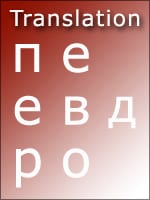
One indication of how deeply many Russian writers and critics admire Platonov is the extent of their generosity to his translators; I now have a large list of people I can turn to for help. Above all, I have the good fortune to have as my closest collaborators my wife, who shares my love of Platonov, and the brilliant American scholar, Olga Meerson.
Olga was brought up in the Soviet Union, she knows a great deal about Russian Orthodoxy, she has written a brilliant book about Platonov and she has the sensitive ear of someone who once trained as a professional violinist. She has deepened our understanding of almost every sentence of Soul and The Foundation Pit. Our new translation is, by the way, an entirely new translation – not merely a revision of the translation we did for Harvill in 1994. There are passages in the first translation that I still like, but at the time we were working in the dark, with little contact with Russian scholars. The new translation, on the other hand, is – I believe – the product of at least some degree of understanding. No other work of literature, by the way, means so much to me that I have wanted to translate it twice!
SRAS: And of course, in order to be the perfect translator you describe, one would need at least a handful of minds to hold all that knowledge – which sounds like what you have assembled for yourself.
Are you a member of any organizations that provide you support as a translator (moral, legal, etc.)? Would you advise students to join these organizations “early?”
RC: Yes, I am a member of the Translators’ Association here in London. I have been to interesting lectures that they have arranged. They provide valuable help vetting contracts. Most important of all, I have met people with whom I can discuss my work. Translating is often thought of as a lonely activity, but it doesn’t have to be – and it is probably better both for the translators and for their work if it isn’t.
SRAS: What other advice would you offer students considering a career in translation?
RC: Be clear about matters of time and money. There is no point in doing a bad, rushed translation of a difficult literary text. It is far better to decide in advance that you will allocate, say, 25 hours a week to translating some boring but well-paid legal, commercial, scientific or journalistic texts – and then devote the rest of your time to translating the writers you love with the attention they deserve.
More From Translators from the Field
(Included current article)

Adam Fuss: Translating Russian Communications
Adam Fuss has worked as a freelance writer, editor, translator, and communications professional for over eight years. Prior to establishing ABF Communications in early 2008, he worked on a series of assignments in Moscow, Russia as a writer and translator for several high-profile global corporate communications projects. He holds a graduate degree from Georgetown University’s School of Foreign Service. […]
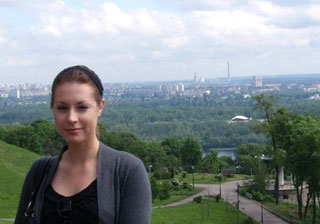
Erin Decker: Translation, Editing, and Advancement in Russia
Erin Decker holds a BA in Political Science and International Studies (Global Security) from the University of Wisconsin-Madison. After completing SRAS’s Translate Abroad program in 2009, she went on to find employment as a translator and editor in Moscow and has lived there since. SRAS: You are currently an analyst-level editor for Equity & Fixed Income Research at […]
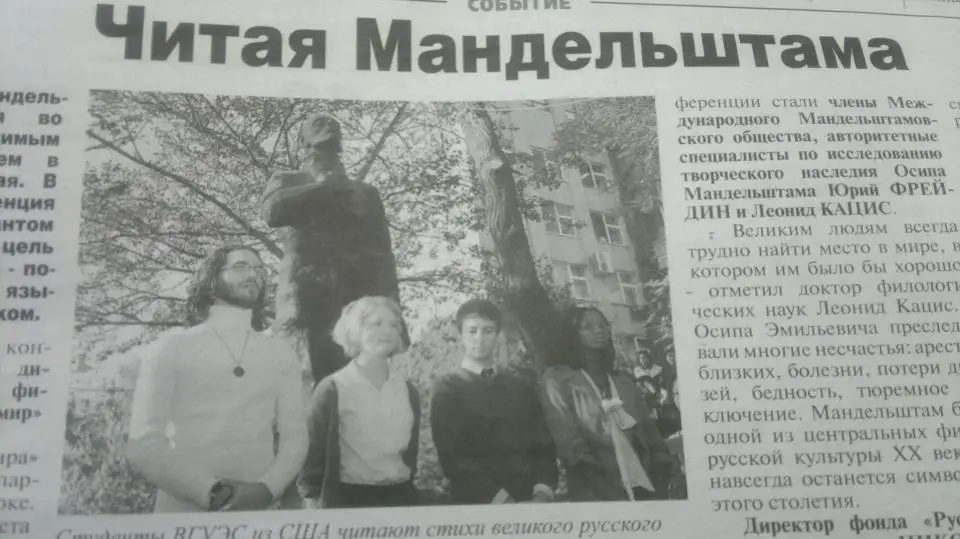
Translating Mandelstam in Vladivostok
One of the things that I enjoy about the Vladivostok State University of Economics and Service is how the Russian language department there is always trying to involve the international students in cultural events. Whether it’s a weekend trip to an archeological dig site, or a visit to the theater to see a movie about […]
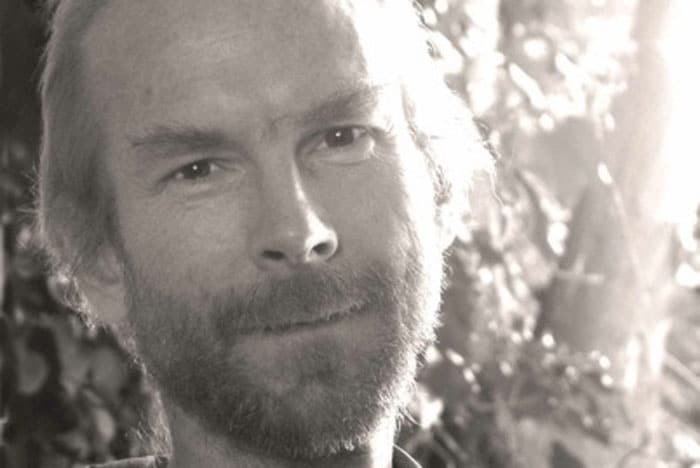
Robert Chandler: Translation as a Career and a Love
Robert Chandler graduated with a BA in Russian and English Literature from Leeds University. His translations from Russian include Vasily Grossman’s Life and Fate and Everything Flows, Leskov’s Lady Macbeth of Mtsensk and Aleksander Pushkin’s The Captain’s Daughter. His co-translations of Andrey Platonov have won prizes both in the UK and in the USA. His translation of Hamid Ismailov’s The Railway […]
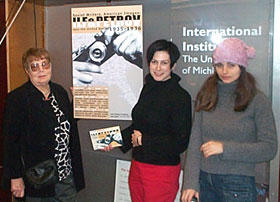
Anne Fisher: Translation and Interpreting as Professions
Dr. Anne Fisher holds a Ph.D. in Russian Literature from The University of Michigan. She has taught Russian in several institutes of higher learning and is now a professional translator and interpertor living in California. Her first major translation, Ilf and Petrov’s American Road Trip: The 1935 Travelogue of Two Soviet Writers, was shortlisted for the […]
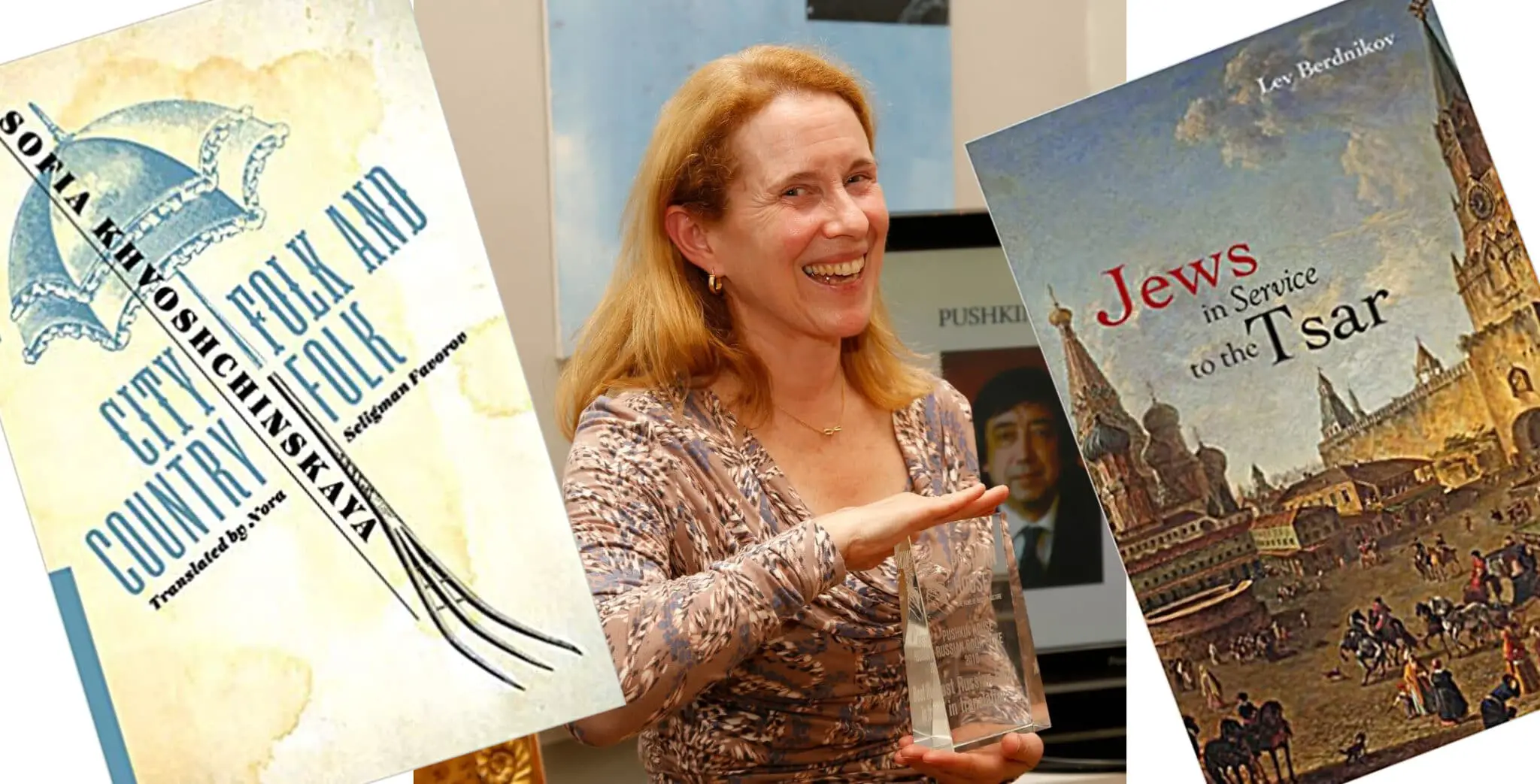
The Accidental Translator: Interview with Nora Favorov
Nora Favorov is a freelance, professional translator working in the Russian>English market and is an active member of the American Translator Association. She recently took some time from her piles of manuscripts to talk about how she came to work in her profession and what it’s like to work in a profession that often must bridge art […]
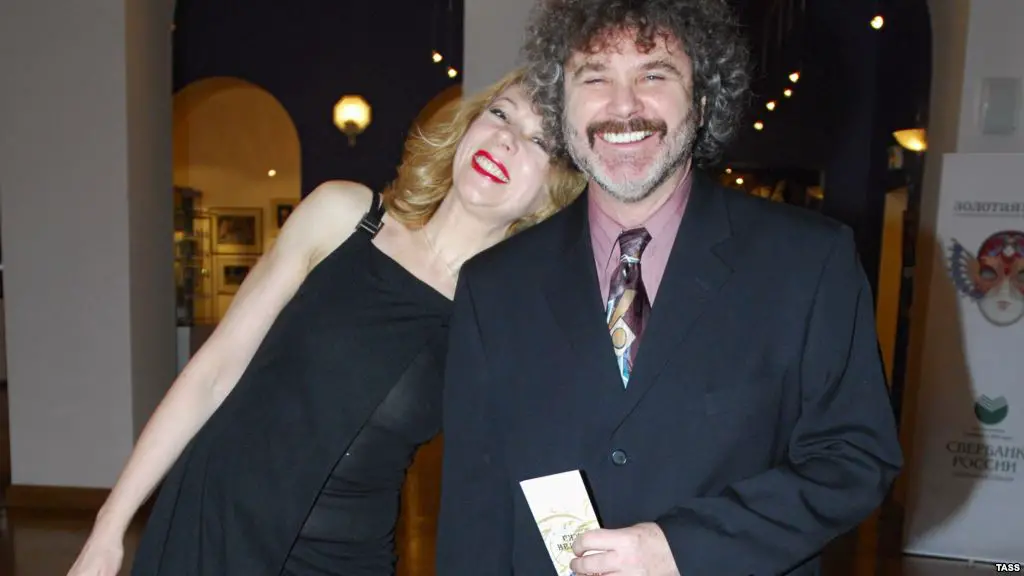
John Freedman: Man of the Newspaper, Theater, etc
John Freedman first came to Moscow in 1988 to research his dissertation for a Ph.D in Russian Literature. He found out a lot. He also found a woman he loves and some incredible professional and personal opportunities. He is now an editor for Moscow’s largest English-language newspaper, a published author and translator, and has been […]





